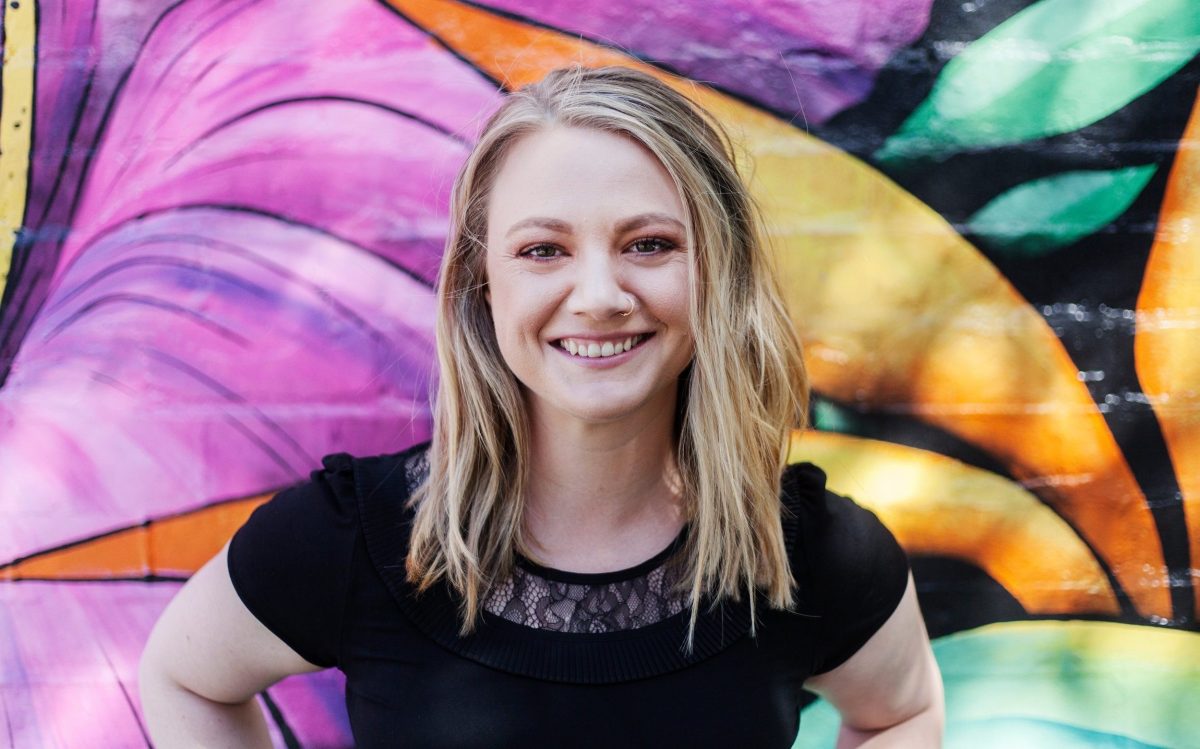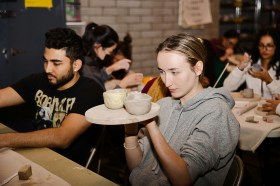Emily Sheehan is a writer, dramaturg and podcaster, who hosts the Playwright’s Process Podcast, a monthly series about the crafting and creative process of the profession. She also teaches playwriting at the Victorian College of the Arts, University of Melbourne in Australia.
Sheehan’s career began after attending the Australian Theatre for Young People’s National Studio program in 2013 and, from there, her plays have been developed through Melbourne Theatre Company Cybec, Red Stitch INK, Playwriting Australia National Script Workshops and the Playwriting Australia National Play Festival.
Internationally, Sheehan has worked as a dramaturg for Theatre503 in London, as well as undertaking dramaturgy observations with the National Theatre of Scotland.
Her play, Monument, was described in an ArtsHub review as ‘a clever and highly entertaining comedy about class, power, societal and intergenerational inequalities, women, women’s relationships, truth and lies…’ during its 2023 premiere season at Red Stitch Actors’ Theatre.
As Monument is returning to Red Stitch for its 2024 season (22 February to 10 March), we ask Sheehan about the highlights of her career, her advice for playwrights starting out and the best thing happening in the field right now.
How did you get started in your career?
My first writing class was the Australian Theatre for Young People’s National Studio program in 2013. I spent a week in the bush at Bundanon with other young, emerging writers from all over Australia. I loved it so much that, when we returned, I signed up for evening playwriting classes at Griffin Theatre in Sydney. The next year I moved to Melbourne to study a master’s in playwriting at the Victorian College of the Arts (VCA).
What’s an average day or week like?
I write three days a week, which I fit around teaching playwriting at the VCA and a day job. On days I’m writing, I work from my home studio. I like to write first thing in the morning and wrap up at lunch. I find writing consistently, more often, makes more of a difference than writing for long stretches every now and then.
I also record a monthly podcast, Playwrights’ Process Podcast. On days I’m working on the podcast, I’ll spend a day developing the episode material, and a second day dedicated to recording and editing.
Read: So you want my arts job: Actor
This month I’m in full-time rehearsals for Monument at Red Stitch Actors’ Theatre. So my days look like being in the rehearsal room during the day and working on any rewrites at night.
What are some of the topics or stories that you are drawn to in your work? And why do you think theatre provides a good medium for them?
My writing often explores aspects of femininity, persona, privilege and class. Monument is about the relationship between a world leader and her make-up artist, set within the intimacy of the make-up chair. It uses the liveness of theatre to delight audiences with a make-up tutorial in real-time, as one character applies the other’s over the 90 minutes of the play.
Frame Narrative at Old Fitz Theatre centres on a clash between an artist and their muse, and asks whether you can ever truly separate a work of fiction from its author.
If you were interviewing someone for your job, what would you look for?
Every playwright is different and I think you need to start with your individual strengths. Whether that’s your empathy, your observations of the world around you, your ability to imagine new hopeful realities, or perhaps your engagement with social or moral issues.
For me, I know imagination and hard work are crucial. It takes a lot of self-motivation to stay with your ideas long enough to finish a draft, and then continue to return to the same play again and again as it goes through the development process with a company.
Then alongside this, I’m always trying to keep developing my knowledge of craft and dramatic structure. This means seeing theatre, reading plays, listening to podcasts and staying in conversation with other playwriting peers.
Do you have any advice for someone starting out as a playwright now?
I studied at VCA, but tertiary study is by no means the only way to begin your playwriting career. As long as you have a way to learn writing craft, the willingness to show up and write pages, and love seeing live performance, then your craft and voice will continue to evolve.
I do think sharing your work is crucial. Whether that’s writing groups, student theatre, playreading evenings or a mentor who can give you feedback on your writing. Having access to feedback and criticism from trusted peers and mentors early in my journey was a huge part of developing my style and point of view as a playwright.
What’s the best thing happening in your field at the moment?
One positive trend in theatre is the increasing focus on equity and inclusion, both in the stories we’re telling on our stages and the practitioners involved in telling them. Many companies are committed to staging new work that reflects a broad range of voices, which is the only way new Australian writing can respond to emerging social issues and the urgent moral dilemmas we all wrangle with.
Read: A beginners’ guide to posthuman theatre
Alongside this, theatre is still in recovery, but I genuinely hope that as our lives become more enmeshed with digital technologies, live performance will become an antidote to screen addiction and living our lives online. Liveness seems to be a novelty and I think that can only open up possibilities for artists.





